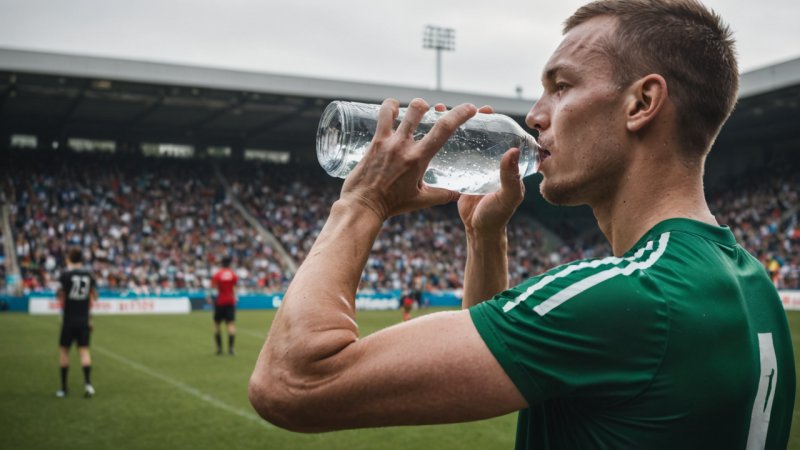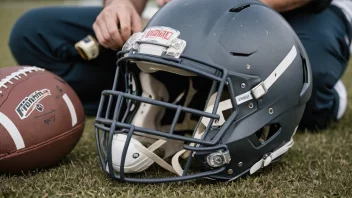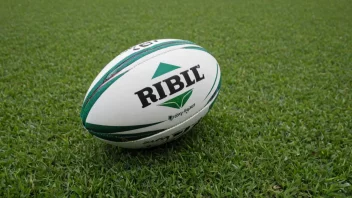Hydration is a crucial aspect of athletic performance, especially in high-intensity sports like football and rugby. As players engage in rigorous physical activity, they lose fluids through sweat and respiration. This loss can lead to dehydration, which negatively affects performance, increases the risk of injuries, and can even result in serious health issues. Therefore, understanding the best practices for hydration is essential for athletes looking to optimize their performance while maintaining their health during matches.
Understanding Hydration Needs
Hydration requirements vary significantly among athletes due to factors such as body size, workout intensity, and environmental conditions. For football and rugby players, the demands of the game can lead to fluid losses of up to several liters in a single match, particularly during hot weather. It is vital for players to recognize their individual hydration needs and to develop a strategy that accommodates these needs.
The Role of Electrolytes
During intense physical activity, athletes not only lose water but also essential electrolytes such as sodium, potassium, and magnesium through sweat. These electrolytes play a crucial role in muscle function and overall hydration status. Therefore, it is important to not just replace lost fluids but also to replenish these vital components. Sports drinks that contain electrolytes can be beneficial, particularly during prolonged matches or training sessions.
Pre-Match Hydration Strategies
Preparing for a match begins long before the whistle blows. Ensuring that players are adequately hydrated before the game can significantly improve their performance and endurance. Here are some effective pre-match hydration strategies:
- Start Early: Hydration should begin at least 24 hours before the match. Athletes should aim to drink plenty of fluids in the days leading up to the game.
- Monitor Urine Color: A simple way to gauge hydration status is to check urine color. Light yellow indicates proper hydration, while dark yellow suggests the need for more fluids.
- Hydrate with Electrolytes: Consuming fluids that contain electrolytes in the hours leading up to the game can prepare the body for the physical demands of the match.
During-Match Hydration Techniques
During the course of a football or rugby match, players need to be mindful of their hydration status. It is essential to incorporate regular hydration breaks into the match strategy:
- Frequent Sips: Players should take small sips of water or sports drinks at regular intervals rather than chugging large amounts at once. This allows for better absorption and helps maintain hydration levels.
- Use of Water Bottles: Teams should provide easily accessible water bottles on the sidelines for players to hydrate quickly during stoppages in play.
- Designated Hydration Breaks: Coaches should implement planned hydration breaks, especially in hot weather, to ensure that players are consistently replenishing fluids.
Post-Match Recovery Hydration
Hydration does not end when the match is over. Post-match recovery is equally important for restoring fluid balance:
- Rehydrate Quickly: Players should aim to rehydrate within 30 minutes after the match to begin the recovery process effectively.
- Combine Fluids: A mix of water and electrolyte-rich drinks can help replace lost fluids and restore electrolyte balance.
- Monitor Recovery: Athletes should continue to hydrate over the next few hours and monitor their urine color to ensure they are returning to optimal hydration levels.
Dehydration Risks and Symptoms
It is crucial for players and coaches to recognize the signs of dehydration, which can include:
- Thirst
- Dizziness or lightheadedness
- Dry mouth or skin
- Fatigue
- Decreased performance
Ignoring these symptoms can lead to more severe consequences, such as heat exhaustion or heat stroke. Players should be educated on the importance of hydration and the signs of dehydration to safeguard their health while competing.
Utilizing Technology for Hydration Management
Advancements in sports technology have provided athletes and coaches with new tools to manage hydration more effectively. Wearable devices can track sweat loss and hydration levels, giving players real-time feedback on their hydration status. Mobile apps that remind athletes to drink water and log their fluid intake can also encourage consistent hydration habits.
Conclusion
Hydration is a fundamental component of athletic performance in high-intensity sports such as football and rugby. By understanding individual hydration needs, implementing effective pre-match, during-match, and post-match hydration strategies, and utilizing technology, athletes can significantly enhance their performance while reducing the risk of dehydration-related health issues. Coaches and players alike must prioritize hydration as part of their training and match strategies to ensure optimal performance and safety on the field.






